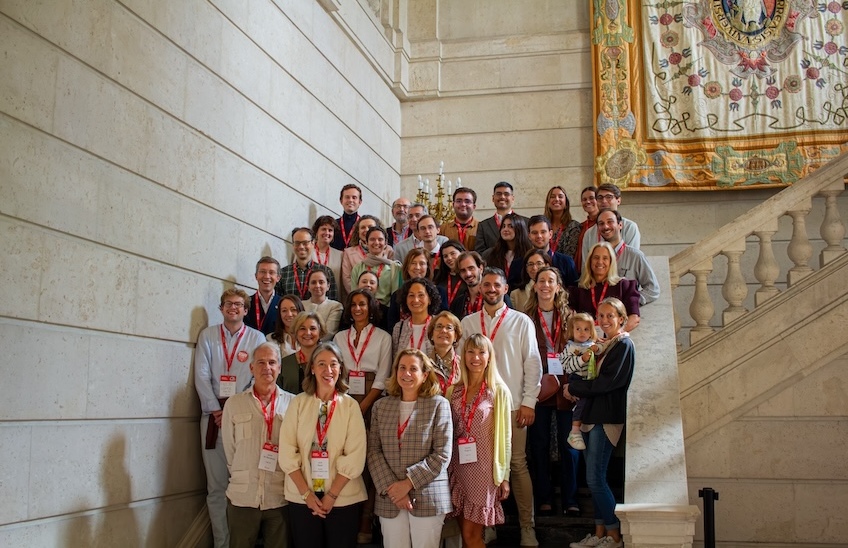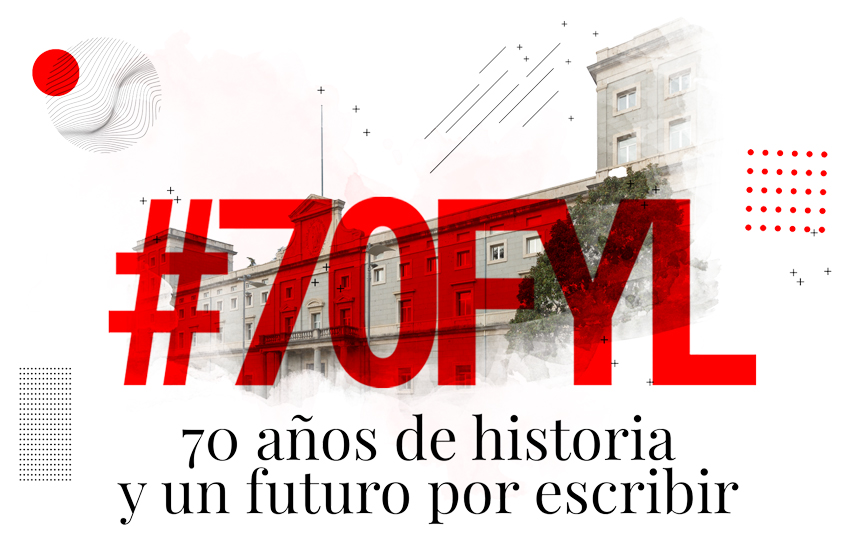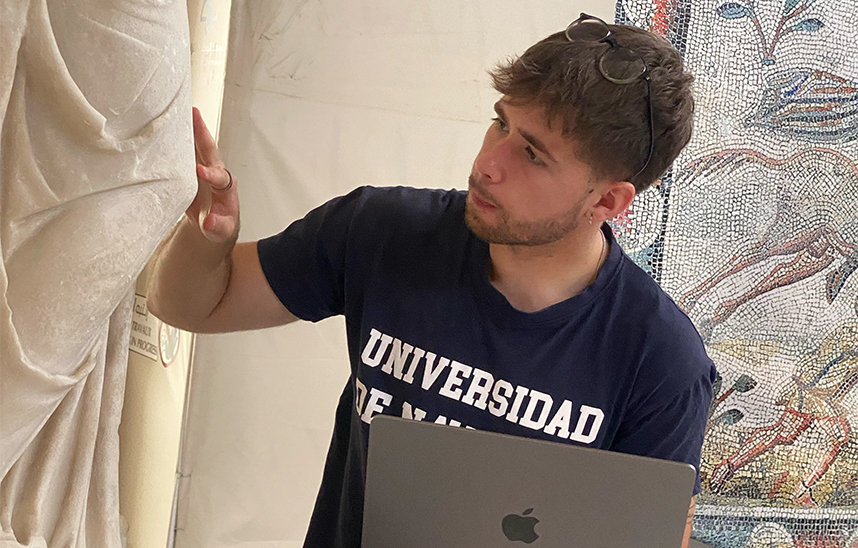"We need to know family stories because they are our roots; they help us feel part of something."
Interview with Dolores López, professor at the School of Philosophy and Letters and collaborator of the IDEA Chair on New Longevities at the Institute for Culture and Society.

PhotoManuelCastells/
One of the greatest challenges of demographic aging lies in trying to recover the value of intergenerational relationships, so necessary for a full and meaningful old age. Many older people live alone, but experts point out that the impact of loneliness is becoming increasingly palpable in younger generations.
This is the context of the VII lecture of the Chair IDEA of New Longevities An intergenerational society? The role of relationships in the society of individualism, position by Dolores López, professor at the School of Philosophy and Letters and collaborator of the Chair IDEA of New Longevities of the Institute for Culture and Society. The discussion paper will be given this Tuesday, September 23, at 12h., in the ICS classroom .
Q. What are the new longevities?
R. When we talk about new longevities, we are referring to how the lives of societies and people have changed with the profound revolution that has been the rise in life expectancy: in 1900, it was 34 years. Now there is a generalization of longevity: reaching old age is no longer a privilege of a few, but many reach the age of 80. This has transformed the way longevity is experienced in societies.
Q. Where do you draw the line as to what is considered an elderly person?
R. Traditionally at the age of 65, because it has been the retirement age. However, nowadays, the period of time spent living after this stage is longer, and this means that there is an increasing heterogeneity among the elderly in terms of their lifestyles, health, family nucleus and economic level.
Q. Would you say that the relationship between people of different generations is being lost? What can be done to strengthen those bonds?
R. Never before in history have we lived in such an intergenerational society as we do today. In the last 100 years there have been many changes. We are living in a society with great lights, but there has also been an intensification of individualism and a progressive weakening of bonds in all spheres, especially in the family sphere.
Q. And why has this weakening occurred?
R. On the one hand, our world is profoundly consumerist, materialistic and utilitarian; "what matters is what I get and not what I am". It is a society in which the logic of the self prevails over the logic of the gift. We are moving faster and faster. Technological advances, which are very good and can serve to strengthen ties, have led to a weakening of these ties. There is, therefore, loneliness. In addition, another of the great problems is that we live in a world that is a showcase: everything is appearances.
Q. Does loneliness affect us all?
R. Yes, but the elderly are the ones who experience it the most, because they have lived through strong relationships in the past. We have many older people living alone, and they are the most aware of what they miss. However, the impact of loneliness on the younger generation is doing more silent damage, because they put their trust in covering their heart's longings with superficial realities.
Q. What role does the University play in recovering these links?
R. It is very important that we do research on this topic at the University, but it is much more important that we know how to transmit it in the classroom. We want our students to leave here with a sense of life and a purpose, and this is achieved through relationships. We need to show young people how important the rest of society is to their happiness. Many times we are lucky enough to live with grandparents or great-grandparents and yet we don't talk to them, we don't waste time talking. To make young people perceive this, it is good to organize intergenerational meetings and to have a space for reflection that shows the beauty and richness of cultivating these relationships. For a student, this is worth much more than six credits in the degree program.
Q. Do you think what is happening is that we no longer know how to listen?
R. Many times we are like the white rabbit in Alice in Wonderland: "I'm late, I'm late, I'm late...". We live in a society with so much noise that we have to learn to see, listen and share. We don't have time for what is important. We miss the opportunities to share that time of life that increased longevity has made possible. It is necessary to know our family stories because they are our roots; they help us feel part of something, and that something is the bonds that are being lost.
P. If you could convey a message to new generations about the value of relationships in a long-lived society, what would it be?
R. Talk to the elders, who will show you a world you didn't know.



